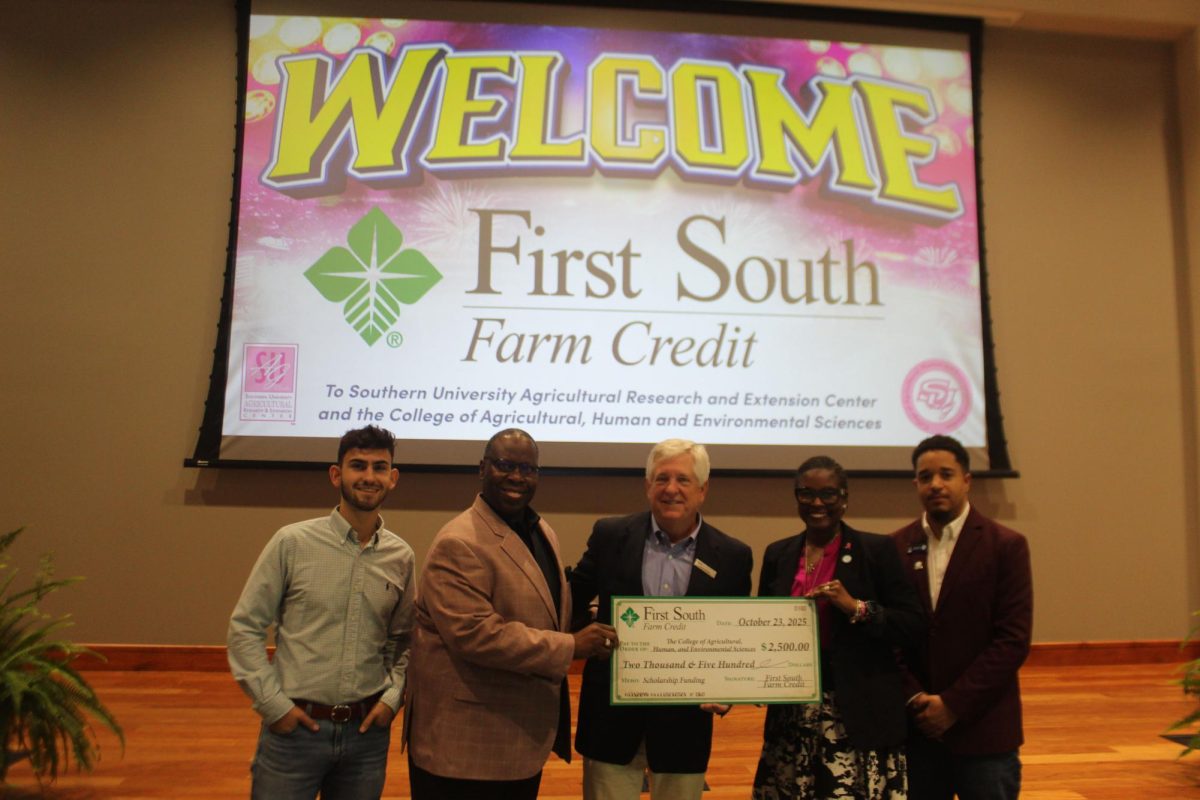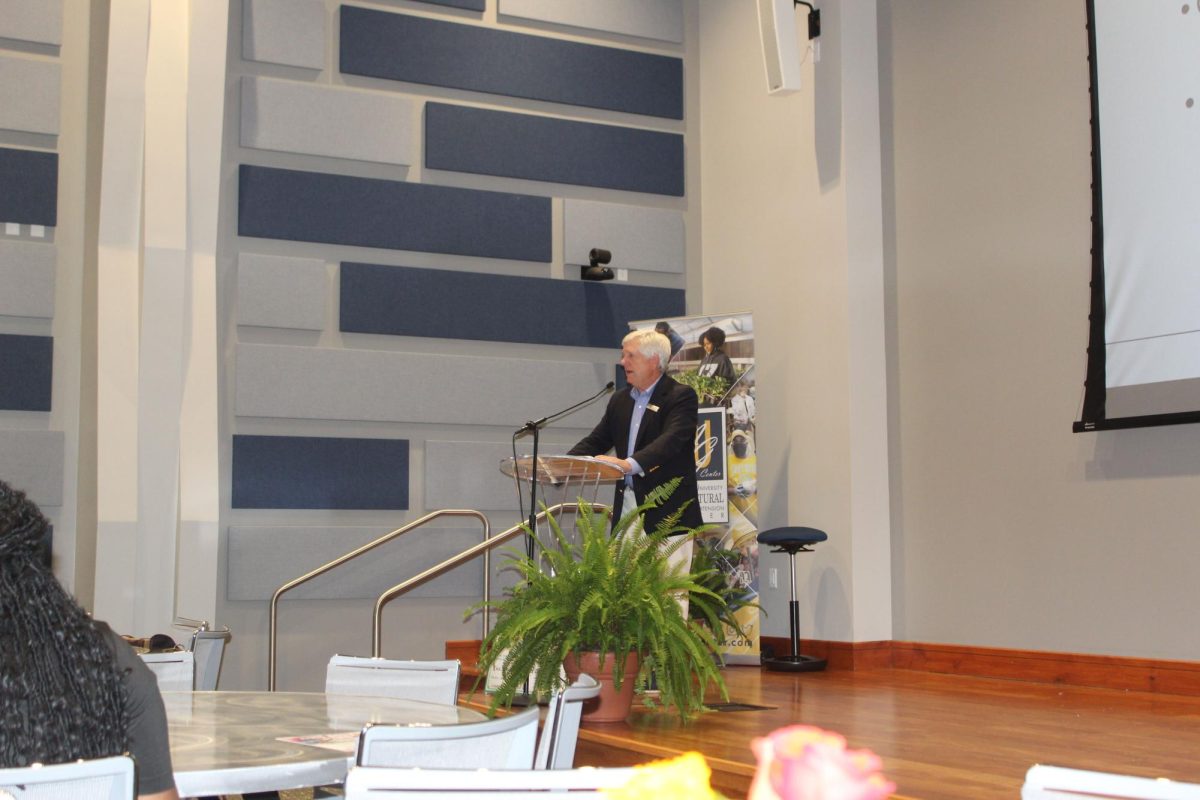Students in the College of Agriculture recently got a closer look at how money moves in the world of farming during a Financial Literacy Workshop hosted by First South Farm Credit. The event was designed to help future agricultural professionals better understand financial systems, especially when it comes to managing land, loans, and long-term investments in rural communities.
The session began with a discussion about the importance of choosing the right lender. Students learned that finding a financial institution familiar with agricultural needs can make a major difference in the success of a farming operation. In Louisiana, for example, some lenders share overlapping service areas, unlike places such as Georgia, where boundaries are clearly marked. Understanding which lenders cover specific territories helps borrowers figure out who can best support their land and business goals.
A large part of the workshop centered on building credit from the ground up. For students with little or no credit history, the message was clear—start small and be consistent. Having a steady job, managing a credit card, or taking out a small loan and paying it back on time all help build a financial foundation. Speakers also talked about how co-signers and collateral can make it easier for new borrowers to qualify for loans when they don’t yet have an established credit record.
One of the main takeaways was that payment history has the biggest impact on a person’s credit score. Thirty-five percent of a score depends on whether payments are made on time. “Do whatever you can to make your payment on time,” said John Sport of First South Farm Credit. He explained that paying only the minimum balance can drag repayment out for years, even on small debts.
Sport also spoke about how the lending industry reacts to market shifts and why it’s important for borrowers to stay disciplined. He shared information about several programs that help new farmers get started, including options that require as little as ten to fifteen percent down. Through the FSA Guarantee Program, eligible applicants can even have certain loan fees covered. The Young and Beginning Farmers Project offers similar opportunities, giving newcomers access to more flexible terms as they establish themselves.
Beyond loans, Sport highlighted educational opportunities through First South Farm Credit. The company offers internships each spring and summer that give students hands-on experience in agricultural finance. There’s also a free online agricultural business course that covers topics like balance sheets and financial planning. Using the code FSHBCU, students can waive the $200 course fee. The class takes about five hours to complete and is meant for anyone serious about improving their financial literacy.
Before wrapping up, Sport encouraged students to prepare before meeting with a lender. “When you sit in front of a lender, have your plan ready,” he said. “Do not be afraid of hard work. It takes time, but stay focused on your goal.”
Students left the workshop feeling motivated to take charge of their financial futures. Sam Summers, a First South Farm Credit intern, said consistency and planning make all the difference. “Starting early is key,” he said. “The first step is getting to know your options and exploring them. Commit to maintaining good credit and set your goals. Keep that end goal in mind.”
For Madison Smith, a junior agriculture major, the event offered practical lessons that extend beyond the classroom. “This is the proper way to learn how to build credit, understand loans, and strengthen financial literacy,” she said. “Farm Credit gives beginner farmers the tools to improve their creditworthiness when applying for loans.”







